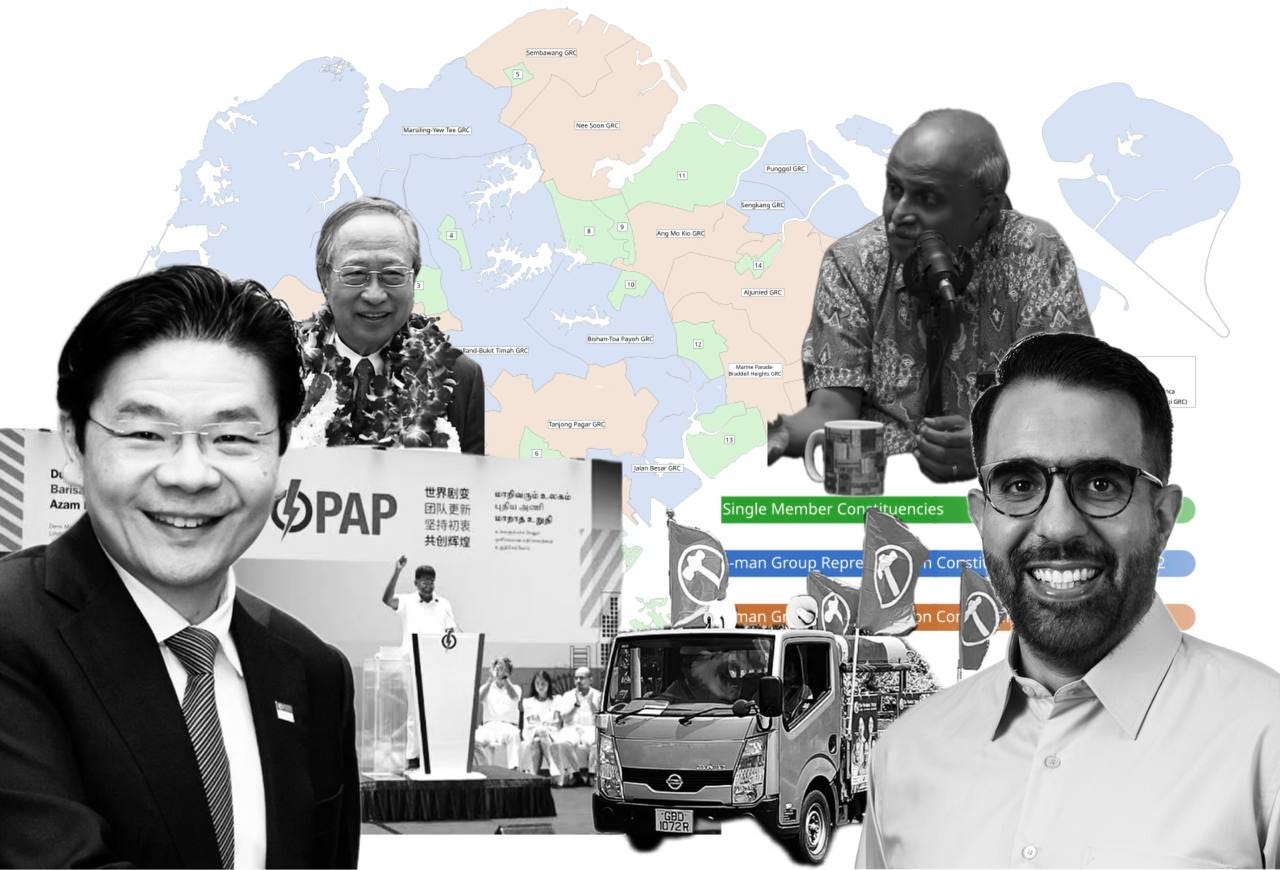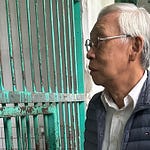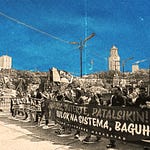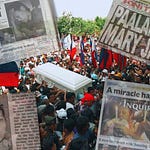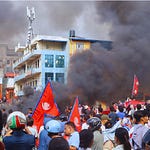‘A strong mandate’.
The go-to cliché beloved by media pundits whenever a political party wins big.
Today, people in Singapore are likely to hear these words a lot, after the ruling People’s Action Party (PAP) claimed a resounding win in the country’s general election. This victory further secures the power of the PAP, which has formed the government since 1959 (six years before Singapore became an independent nation) and has maintained a monopoly on politics in the country since then.
The election result has been disappointing for many opposition supporters, who’d hoped this year they’d see some progress towards a more democratic, politically diverse system.
Cautious optimism on the campaign trail
A PAP victory was never in doubt. But the nature of their victory was the main issue at play: a reduced vote share is widely seen as a way for the electorate to deliver a stern message to the ruling party, without kicking it out of power completely.
There was cautious optimism that opposition candidates who’d narrowly missed out on a parliamentary seat five years ago — like the Singapore Democratic Party’s Paul Tambyah — might actually triumph this time. The Workers’ Party (WP), currently the country’s most successful opposition party, was also gunning for a few more constituencies to add to its collection.
None of these dreams came true — Tambyah lost resoundingly; smaller parties barely made a dent against the PAP; and multiple well-known PAP politicians coasted to reelection with extremely comfortable margins, many between 70 and 80 percent of the vote share.
A mild silver lining for non-PAP parties was that the WP didn’t lose any territory, maintaining their two group constituencies and one single MP consistency, giving them a total of 10 elected seats. Two other constituencies contested by the WP lost out by very narrow margins, granting the party another two seats in Parliament through a scheme that brings in the “best losers”, to make up the numbers if there are fewer than 12 elected opposition parliamentarians.
By the end of the night, the PAP had increased its vote share by four percent from five years ago, giving it the “strong mandate” that Lawrence Wong, for whom this was his first general election as premier, was looking for.
Live-streaming an emotional rollercoaster
Online reactions from opposition supporters have, somewhat predictably, been a mix of shock, anger and resigned melancholy. This was on full display for those of us who opted to see the night out with livestreams, such as with independent media site The Online Citizen, which featured Terry Xu, Sean Francis and PJ Thum.
Over the next six-plus hours, the three went through a rollercoaster of emotions, starting off as upbeat and cautiously optimistic, to looking increasingly worried, followed by a downward spiral into depressed acceptance.
Singaporean digital magazine Jom also live-streamed a watch party, and while I haven’t seen all of it, when I tuned in midway through last night it felt like they were giving a eulogy.
‘I don’t think I’ve processed it yet’
To get a sense of the feeling on the ground in Singapore, I spoke with Anngee Neo, an illustrator and political commentator (who was on the Jom livestream panel).
While recording, it was clear that Anngee was feeling a mix of shock and disappointment over the results, noting that her confidence started to drop when the sample count indicated that Paul Tambyah was on course to lose by a greater margin than five years ago.
‘I don’t think I’ve processed it yet, but that was quite unbelievable’, she said.




